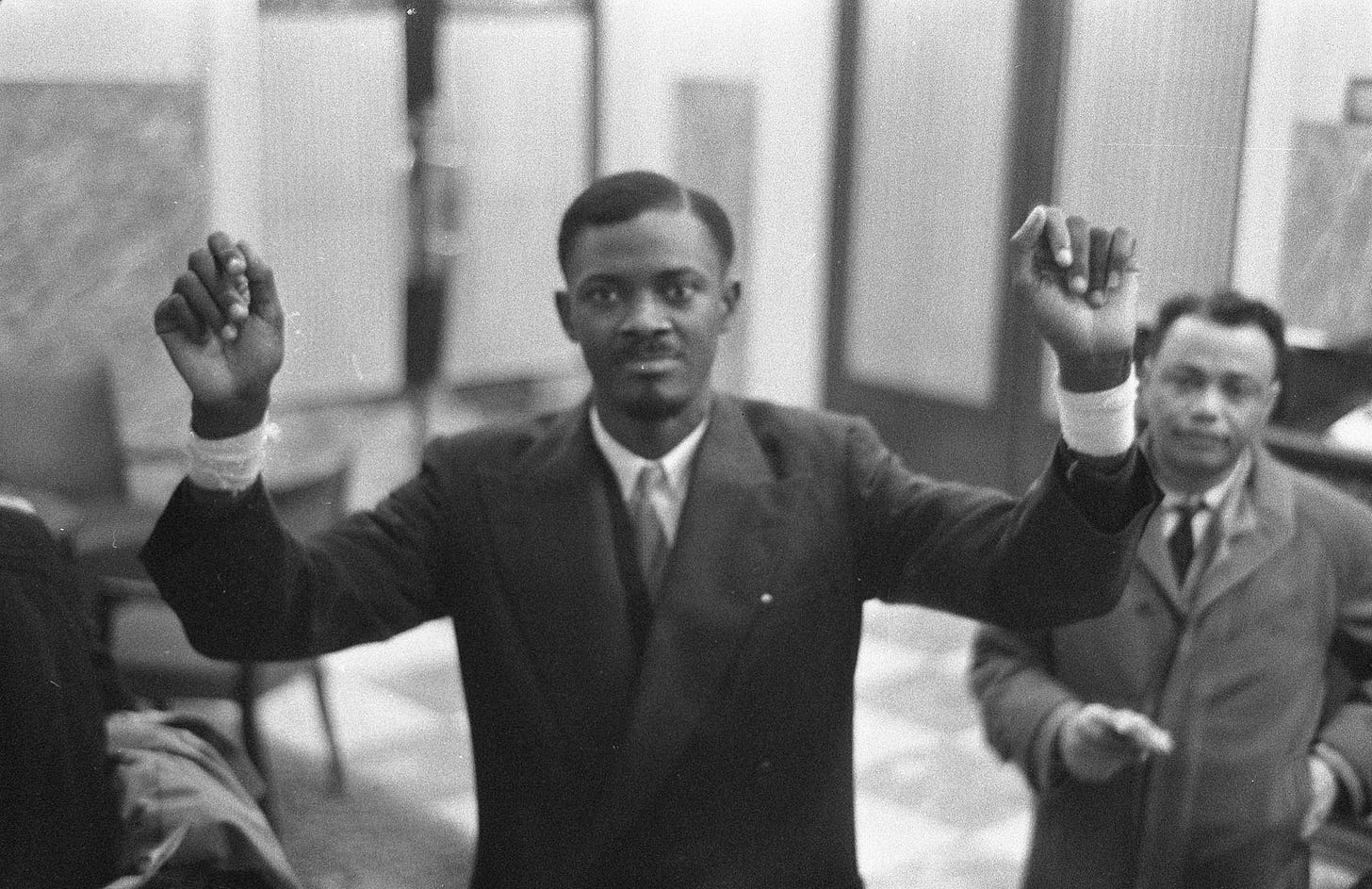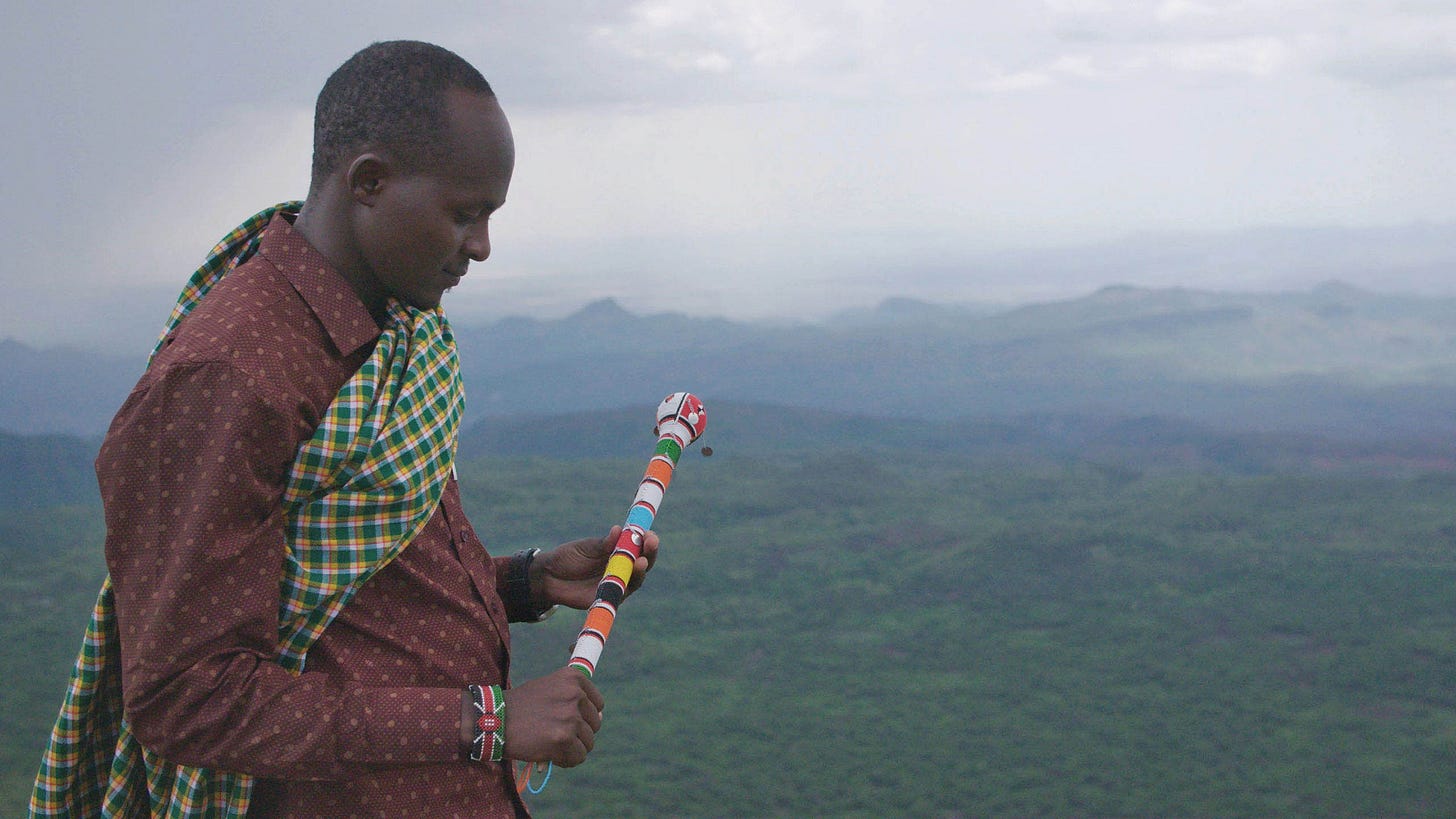Africa at Sundance: History in the making, and in the unmaking
The biggest films on African themes took dramatically different approaches
Wilfred Okiche
The pickings were especially slim for African films at the Sundance film festival this year.
The Battle for Laikipia (pictured above), which competed in the World Cinema Documentary category, was the only African-helmed title in the main competitions of Sundance 2024.
While essentially American, Sundance is one of the most important launch pads for independent film. Seeing just one African film in its competitive categories was dispiriting compared with 2023, a banner year for African participation at the festival, where titles like Mami Wata and Animalia had splashy premieres and went on to win awards and global acclaim.
Laikipia’s producer, Toni Kamau, won the festival’s producer award for nonfiction, a well-deserved nod for a film whose generous access to its subjects helps it go well beyond the climate change headlines. It overcomes a shaky start to weave a compelling narrative of the conflict between indigenous Samburu pastoralists in East Africa, whose customs do not necessarily recognise borders, and white ranchers of British descent, who erect fences to protect their economic investments and livelihood.
This conflict has been decades in the making, going back to the arrival of British colonisers and the land dispossession that followed. The transfer of power from colonialists to black elites during independence failed to address the land question, but it is a prolonged drought that brings things to a violent boil. There are no heroes or villains in this complex saga of historical resentments and intertwined fates. Resolution demands a sustainable roadmap for the future but history (or a disregard for it) leaves the questions open.
Directors Daphne Matziaraki and Pete Murimi both have journalism backgrounds, and take care to remain neutral observers. While this is appreciated, one wonders if this approach best serves the history at play.
Johan Grimonprez’s Soundtrack to a Coup d’Etat – which won a special jury award for cinematic innovation in the World Cinema Documentary Competition – departs from the neutral observer approach to interrogate a part of history many might prefer to be locked away. This highly inventive stunner melds history, politics and music into an intoxicating brew that details how the Belgian monarchy, the United States government and a pliant United Nations colluded to assassinate Patrice Lumumba, the first prime minister of the DRC.
Weaponising jazz, iconic African American musicians like Louis Armstrong, Dizzy Gillespie and Nina Simone were dispatched unwittingly to Africa (and Russia) as cultural decoys.
They gave special concerts ostensibly to deflect attention while the CIA executed a coup whose repercussions are still traumatic in the DRC today.
This visual essay film comes at its objectives from diverse points of view using archival footage, home movies, official texts, as well as samples from Lumumba’s fiery speeches. Belgian filmmaker Grimonprez threads these media together into a scattershot, nonlinear but always fascinating whole, using jazz and rumba rhythms to drive home his points. There is no reaching for a balanced objectivity here even though Grimonprez notes the efforts of artists like Maya Angelou, Max Roach and Abbey Lincoln, who lent their voices to the protest movements. The film is audacious in its approach to form, taking inspiration from the free-wheeling energy of jazz.

In the Spotlight section, two films which had premiered previously at the Cannes film festival were presented to new audiences. Asmae El Moudir’s
The Mother of All Lies confronts family secrets and suppression of memory. With the assistance of co-operative relatives and despite facing resistance from her unyielding grandmother, El Moudir uses clay puppets and sets to revisit the trauma of the 1981 Casablanca bread riots.
And àma Gloria, directed by Marie Amachoukeli, is a small but impeccable drama about the painful but necessary separation process between a six-year-old French child and her Cape Verdean nanny.




